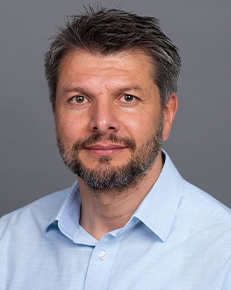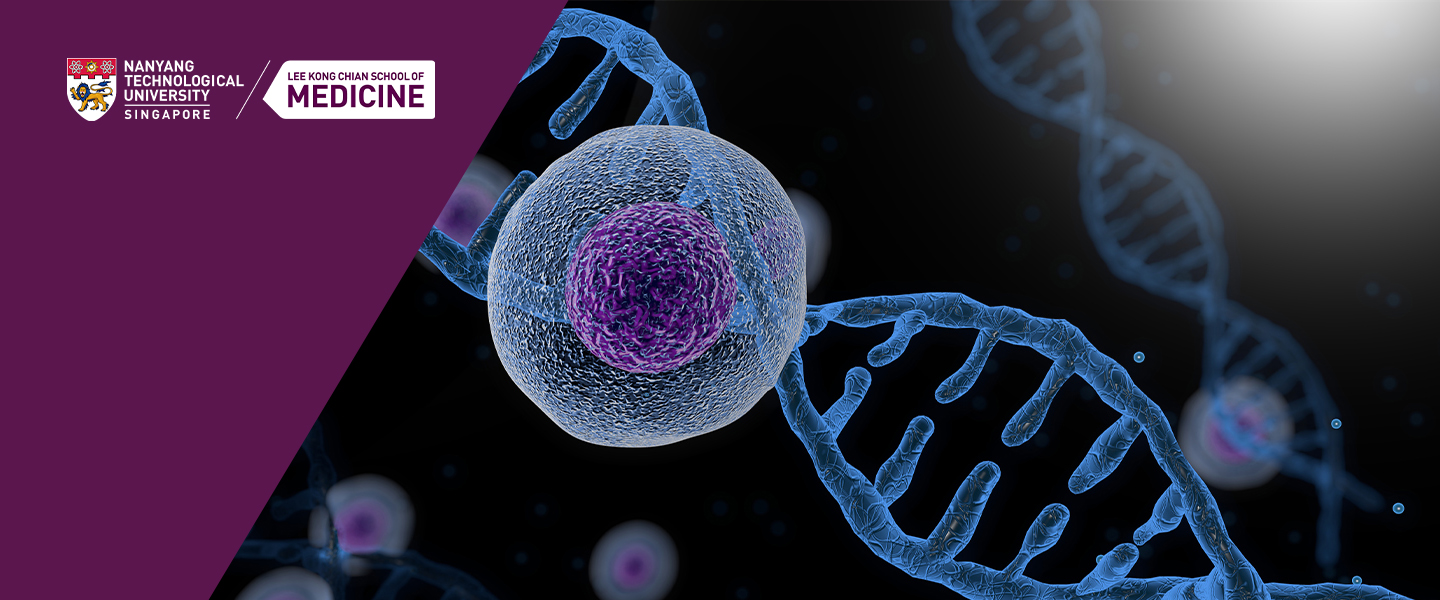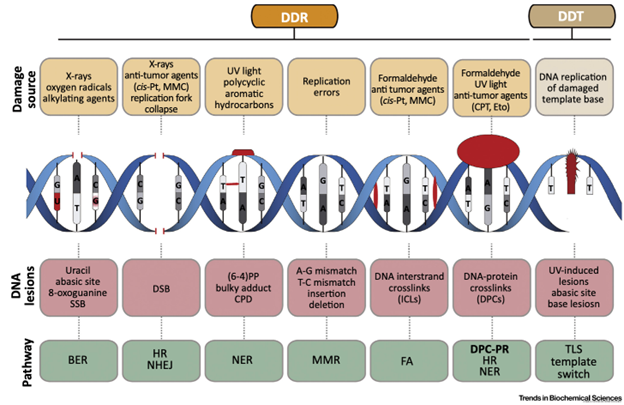Research: The Cancer Discovery & Regenerative Medicine Programme
 | By Professor Kristijan Ramadan, Cancer and Stem Cell Biology |
Cancer, the second most common cause of death worldwide, is made up of over 200 different diseases. Various environmental, metabolic and genetic factors play essential roles in cancer genesis, development and progression. Due to the scientific focus of the new Director towards Genome Stability in Cancer and Stem Cell Biology, the Developmental Biology & Regenerative Medicine Programme at LKCMedicine has recently been rebranded to the Cancer Discovery and Regenerative Medicine Programme using existing resources and several strategic recruitments. The mission of the new programme is to advance the understanding of the role of genome stability and the ubiquitin system in cancer and stem cell biology and regenerative medicine and translate in-house research findings to improve current clinical practices further.

Philosophy of the rebranded programme
Our philosophy is to use cutting-edge technologies, innovative research, and cross-disciplinary collaborations to address critical problems in cancer genesis and therapy. Based on this philosophy, we strive to train the next generation of medical doctors and cancer researchers. The main focus of the programme is to investigate the role of protein degradation in genome stability, especially in processes related to DNA replication, DNA repair, cell cycle, and immune response and how these processes regulate cellular response in healthy and cancer cells, stem cell differentiation in various organs, the cancer microenvironment and response to chemo- and radiotherapy. The overarching goal is to identify druggable targets and biomarkers that can be translated for cancer diagnosis, prognosis and therapy.
Cracking cancer’s code to enhance care
Our innovative research harnesses cutting-edge technologies and cross-disciplinary collaborations to identify biomarkers and druggable targets that can be used for cancer diagnosis, prognosis and treatment. For example, with cancer caused by the uncontrolled growth of cells, our key focus is to investigate the role of protein degradation in genome stability, especially in processes related to DNA replication and repair, cell cycle, immune responses and stem cell differentiation and reprogramming. This will enable us to understand better how the processes regulate cellular responses in healthy and cancer cells, including stem cells, the cancer micro-environment, and the effect of chemo- and radiotherapy. At the same time, we are striving to train the next generation of medical doctors and cancer researchers.
Gaining ground against cancer
By tapping on genomic technologies and analyses, our researchers are characterising cancer genomes and shedding light on genetic changes that lead to cancer formation, progression, and treatment resistance. We are also discovering how stem cells are transformed into cancer stem cells and uncovering the latter’s properties. Our work provides greater knowledge of tumours’ micro-environment, including their stromal components such as cancer-associated fibroblasts, how they stimulate the growth of new blood vessels, immune cell interactions and extracellular matrix dynamics.
Research Themes
The research groups associated with the programme integrate cutting-edge research and form three main themes as follows:
- Genomics, Genome Stability, and the Ubiquitin System
Utilises genomic technologies and analyses to characterise cancer genomes and identify genetic alterations in the ubiquitin system and understand how these alterations contribute to cancer initiation, progression, and treatment resistance in the context of genome stability, immune response and metastasis.
- Initiation of tumourigenesis and reprogramming
Explores reprogramming and differentiation of stem cells and characterises cancer stem cell properties.
- Rebuild tissue microenvironment
Investigates the tumour microenvironment, including immune cell interactions, stromal components, extracellular matrix dynamics, and neoangiogenesis.

Figure: DNA Repair Pathways. Schematic model of various DNA lesions caused by different genotoxic agents and respective DNA repair pathways. Specialised DNA repair pathways that cope with specific types of DNA lesions are essential for genome stability but also represent a promising therapeutic window for cancer therapy. The role of DNA repair pathways is involved in all three aspects of our research themes. (Adopted from Vaz et al. TIBS, 2017)
Plans
We aim to integrate research groups into the programme as an added value and work collaboratively with other LKCMedicine programmes and academic, scientific and clinical institutions in Singapore and worldwide to address fundamental questions in cancer and stem biology that can potentially be translated into the clinics and thus benefit cancer patients.

